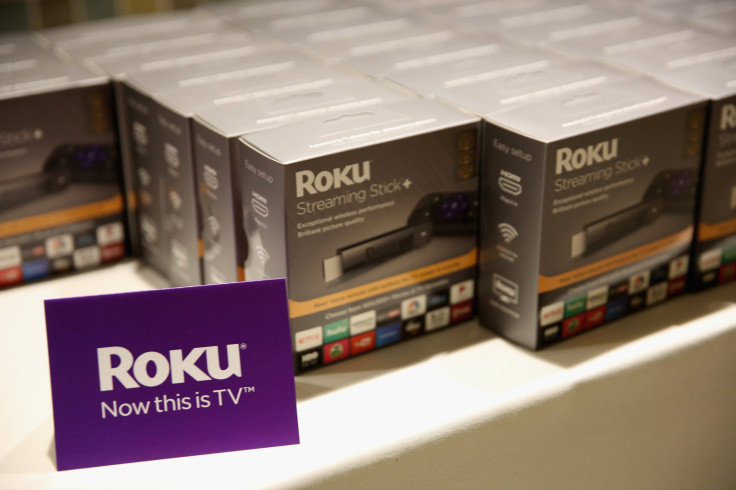Roku's TV Strategy Puts It On Another Level

Roku (NASDAQ:ROKU) says 1 in 3 smart TVs sold in the United States in the first quarter had Roku OS installed. Those smart TV sales, combined with its streaming sticks and set-top boxes, led it to take 30% of the total market for streaming devices in the first quarter, according to Strategy Analytics.
The analysts at Strategy Analytics also point out that Roku TV sales have propelled it to widen its lead in streaming device usage over the competition. And the race is not even close.
Roku accounts for 15.2% of all streaming devices in use in the U.S. That's a 36% lead over its next-closest competitor, Sony's PlayStation. Sony, Samsung, and Microsoft are all tightly clumped together in another tier, and Alphabet's Google and Amazon (NASDAQ:AMZN) are another level down.


While all of the above companies pose competitive threats to Roku, its smart TV partnerships ought to enable it to widen its lead even further.
Smart TVs lead the way
Around half of Roku's 29.1 million active users are Roku TV users, according to an estimate from Needham analyst Laura Martin. That percentage ought to climb even higher over the coming years as Roku TVs continue to capture market share.
Total smart TV sales set a new record in the first quarter, according to Strategy Analytics. That means the need for a connected device like a Roku box or Fire TV stick is decreasing. Importantly, smart TVs are stickier than streaming sticks since they have greater sunk costs. Consumers are more likely to replace a $30 electronic device than their brand-new smart TV.
Roku could hold 70% more market share than its next-closest competitor by the end of the year if it continues to dominate the smart TV market. And that share will keep growing as Roku TV users stick around and Roku adds new users.
More engaged, higher-value users
Not only are Roku TV users more likely to stick with Roku longer than its device users, they're also more likely to engage with Roku OS than device users. The Roku home screen is the first thing Roku TV users see when they turn on the TV, and Roku is able to build in more features to engage users watching live TV as well.
The potential for increased engagement on Roku TV over other Roku devices is evidenced in the acceleration in streaming hours in each of the last five quarters. Roku also has a considerable lead over other streaming platforms for streaming hours per user.
While Amazon can point to its 34 million global Fire TV users, it doesn't disclose user engagement. The average Roku user streamed around 3.5 hours per day in the first quarter.
There's still a considerable gap between Roku's engagement and its monetization. A key to Roku closing that gap is to convert more television advertisers to streaming video advertisers. Roku TV users can help Roku bring more television advertisers to its platform, providing greater cross-platform measurement capabilities than its stand-alone devices.
Keeping up the pace
Roku has steadily gained market share in the U.S. smart TV industry over the last few years. The competition has improved as well, notably from Amazon, so Roku will need to continue to develop partnerships and features for its operating system to stay ahead.
It also has a massive opportunity internationally, where it's less well known. In its fourth-quarter letter to shareholders, management said it's increasing its investment in international markets but doesn't expect to see any return from those investments until 2020. It has to overcome the massive brand recognition already established by Amazon and others in those markets. With enough partnerships and marketing, Roku should be able to replicate its success in the U.S.
John Mackey, CEO of Whole Foods Market, an Amazon subsidiary, is a member of The Motley Fool's board of directors. Suzanne Frey, an executive at Alphabet, is a member of The Motley Fool's board of directors. Teresa Kersten, an employee of LinkedIn, a Microsoft subsidiary, is a member of The Motley Fool's board of directors. Adam Levy owns shares of Alphabet (C shares), Amazon, and Microsoft. The Motley Fool owns shares of and recommends Alphabet (A shares), Alphabet (C shares), Amazon, Microsoft, and Roku. The Motley Fool has a disclosure policy.
This article originally appeared in The Motley Fool.





















